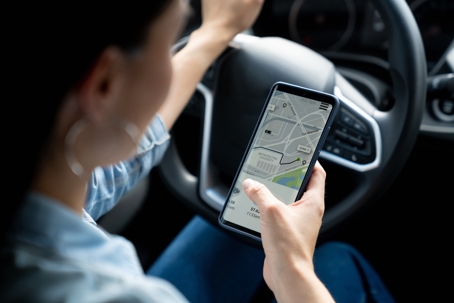Rideshare services like Uber and Lyft have become a part of everyday life for millions of Floridians. They offer a convenient, affordable way to get around, especially in busy cities like Miami, Tampa, and Orlando. However, as the popularity of ridesharing has grown, so has the number of accidents involving these vehicles. If you’ve been involved in a rideshare accident, you may wonder, “Who’s liable?” The answer isn’t always straightforward, but understanding the unique factors surrounding these cases is vital.
Why Rideshare Accidents Are on the Rise
Several factors contribute to the increasing number of rideshare-related accidents in Florida:
- More Cars on the Road: Rideshare services mean more vehicles in circulation, and more cars lead to higher chances of collisions—especially in highly congested areas.
- Driver Distractions: Many rideshare drivers rely on GPS to pick up and drop off passengers, which can be a significant distraction. The crash risk increases with calls or texts from the rideshare app.
- Unpredictable Stops: Unlike traditional taxi drivers, rideshare drivers often stop suddenly or double park to pick up or drop off passengers, leading to rear-end accidents or confusion on the road.
- Fatigued Drivers: Rideshare drivers often work long hours, sometimes juggling another job. Fatigue can impair reaction times and decision-making abilities, increasing the chances of an accident.
- Passenger-Related Issues: Sometimes, unruly or intoxicated passengers can cause distractions or even interfere with the driver’s focus.
Given these unique dynamics, it’s no surprise that determining liability in rideshare accidents can be tricky.
Who’s Liable in a Rideshare Accident?
When it comes to rideshare accidents, the issue of liability is more complex than with regular car accidents. Here’s why:
1. The Rideshare Driver
If the rideshare driver is at fault for the accident, their auto insurance might not always cover the damages. However, rideshare companies like Uber and Lyft provide supplemental liability coverage depending on the driver’s status during the crash.
- The app is off: If the driver wasn’t using the rideshare app when the accident happened, the incident falls under their auto insurance.
- Waiting for a ride request: When the driver has the app on but hasn’t yet accepted a ride, Uber and Lyft typically provide limited liability coverage of $50,000 per person for injuries and $25,000 for property damage per accident.
- En route to pick up or during a trip: If the driver has accepted a ride or is actively transporting a passenger, the rideshare company’s $1 million liability coverage kicks in.
2. Another Driver
If another vehicle’s driver causes the accident, their insurance should cover the damages for injuries and property damage. Florida is a no-fault state, meaning your Personal Injury Protection (PIP) insurance will cover some of your medical expenses regardless of who was at fault. For serious injuries, though, you might need to file a claim against the at-fault driver.
3. The Rideshare Company
While rideshare companies claim their drivers are independent contractors, they do provide liability insurance in certain situations. However, getting Uber or Lyft to accept fault directly can be challenging, as they often argue that the driver, not the company, is responsible.
4. Third Parties
Sometimes, accidents are caused by outside factors like poor road conditions, faulty vehicle maintenance, or defective car parts. In these cases, a government agency, a maintenance company, or an auto manufacturer may be liable.
Steps to Take After a Rideshare Accident
If you’re involved in a rideshare accident, staying calm and taking the right steps can make a big difference in protecting your rights:
- Prioritize Safety: If possible, move to a safe area and check for injuries. Call emergency services immediately if needed.
- Report the Accident: Inform the police and file an official report. If you’re a passenger, notify the rideshare company through their app.
- Document the Scene: Take photos or videos of the accident scene, including vehicle damage, road conditions, and injuries. Gather information from all parties involved, including the rideshare driver, the other driver, and witnesses.
- Seek Medical Attention: Even if you feel fine, getting checked out by a doctor is crucial. Some injuries, like whiplash or concussions, may not show symptoms immediately but could worsen over time.
- Contact an Attorney: Rideshare cases often involve multiple parties and complex insurance policies. An experienced attorney can help you determine who’s liable and ensure you get the compensation you deserve.
- Avoid Speaking to Insurers Alone: Insurance adjusters may try to downplay your claim or shift blame. Having a lawyer on your side can protect you from unfair tactics.
Why Legal Help Is Essential
Rideshare accidents mix personal and commercial liability, making them more complicated than typical car crashes. You might be dealing with multiple insurance policies, each trying to avoid responsibility. This is where a personal injury attorney can step in. They can:
- Investigate the accident thoroughly to determine fault.
- Handle negotiations with insurers to push for fair compensation.
- Represent you in court if a settlement can’t be reached.
When dealing with injuries, medical bills, or lost wages, the last thing you should worry about is navigating a complex legal system. A skilled attorney can lift that burden and fight for your best interests.
Florida Uber and Lyft Accident Attorneys
In conclusion, understanding the intricacies of rideshare accidents, liability, and insurance is essential for Florida residents who rely on these services. As the landscape continues to evolve, staying informed about safety tips and regulatory changes is crucial. If you find yourself involved in a rideshare accident in Tampa, FL, or need legal guidance, The Florida Law Group is here to help. Our experienced team can provide the expertise and support you need to navigate the complexities of rideshare-related legal issues. Contact us today at (833) 899-0310 to learn more about how we can assist you.

